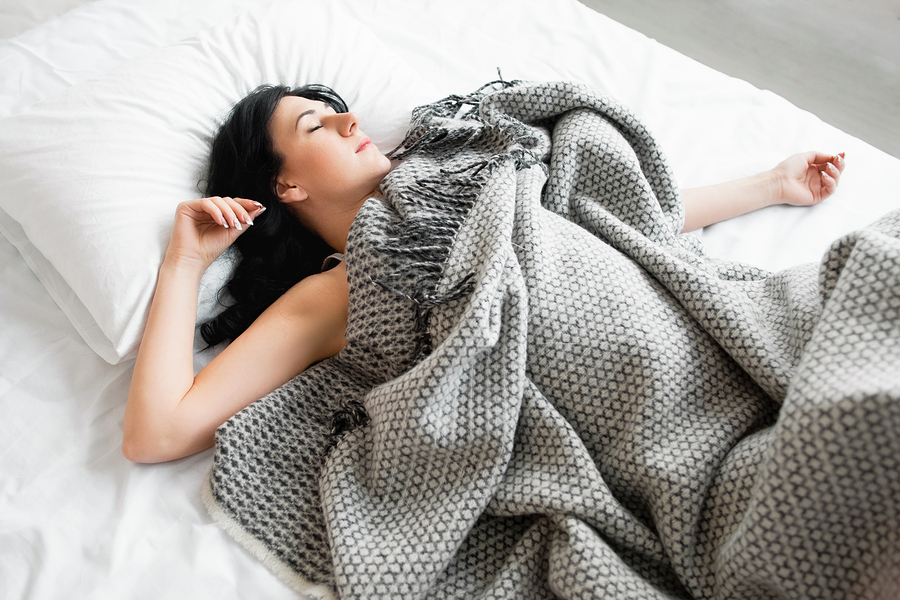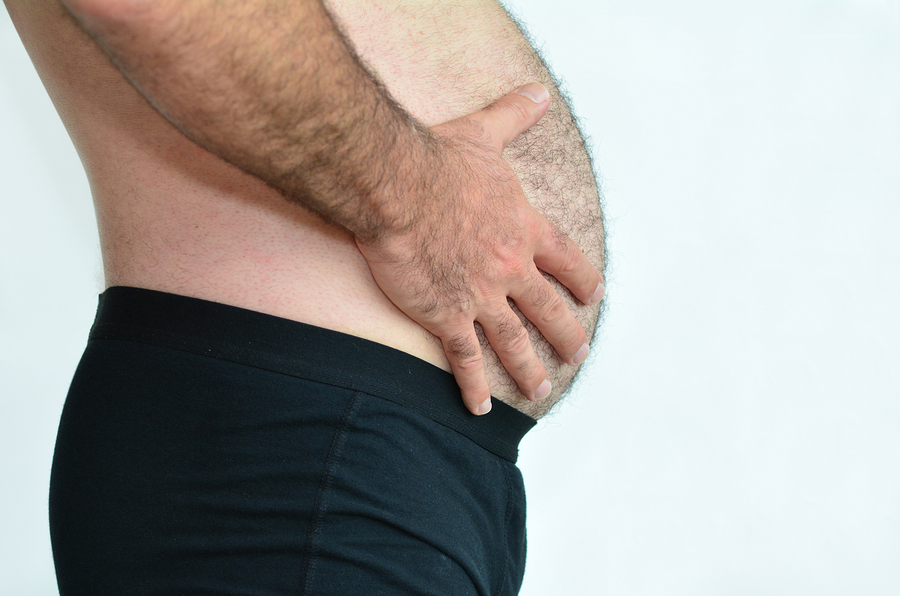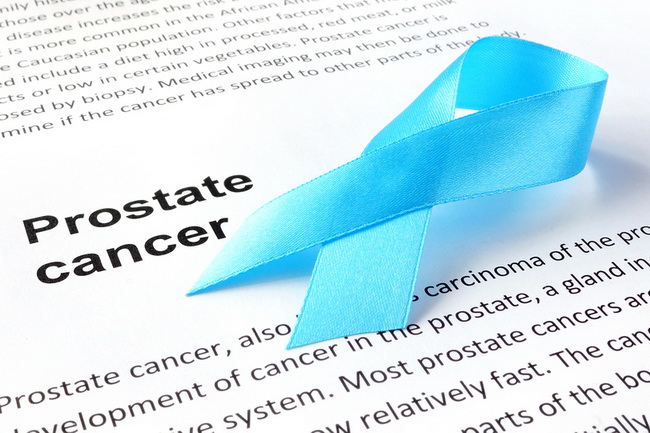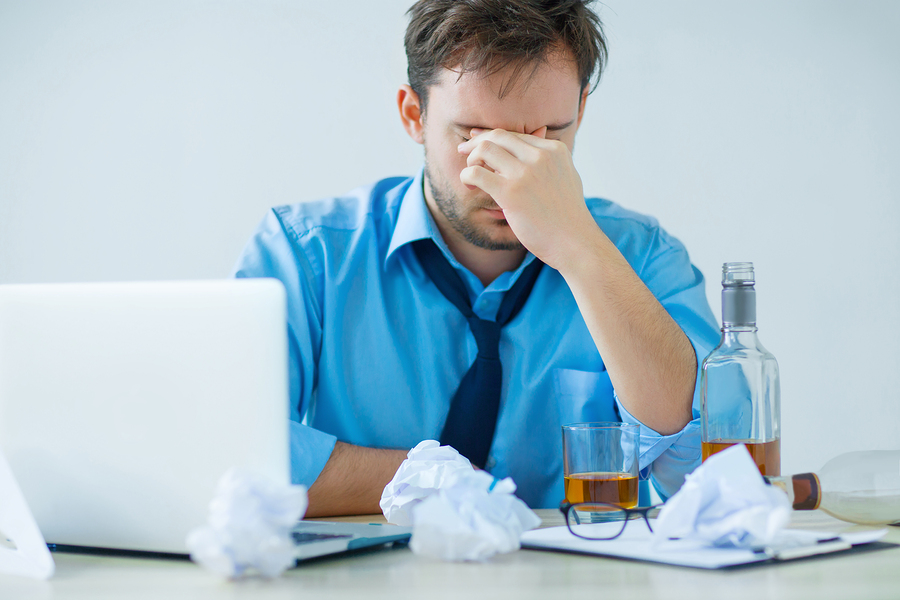- Make It Yourself Lavender Heart-Shaped Bath Bombs!
- 20 Things You Never Knew About “Down There”
- 12 Best Foods For Those Suffering From Arthritis Pain
- 12 Personal Hygiene Mistakes Almost Everyone Makes (Mom Never Told You About #4!)
- 15 Medicinal Plants And Herbs From The Cherokee People
- 12 Mind-Blowing Benefits Of Drinking Coconut Water During Pregnancy
- 12 Outstanding Winter Foods That Won’t Fatten You Up Like A Christmas Turkey
8 Diseases That Could Stem From A Lack Of Sleep (#6 Comes Out To Be The Least Expected)

Photo credit: bigstock.com
Whenever you have a hard time falling asleep you know how miserable you felt the next day. You were irritable, had trouble remembering things, couldn’t concentrate, and you could think of nothing more than climbing back into bed.
As if that isn’t enough, researchers have gone on to find out that it’s even worse than expected. There are serious diseases that can be generated from poor sleeping habits. You may think this could be an exaggeration but there are many things that the body must do in order to recharge itself and remain in a healthy state.
1. Heart issues
If you already have problems with your blood pressure, it only takes just one night without the proper amount of sleep to experience higher blood pressure numbers the next day. There is a sleep disorder called sleep apnea that also interferes with normal blood pressure readings and can actually hasten heart problems. People with sleep apnea appear to be sleeping soundly, many exhibit strong episodes of snoring as well, but they actually stop breathing for a matter of seconds. Every time they resume their established sleep pattern, their blood pressure becomes elevated. Issues with hypertension automatically put you at a higher risk for a heart attack or stroke.
Continue to Page 2

Photo credit: bigstock.com
2. Diabetes
With fatty acids being the main hindrance to your metabolism’s speed as well as to the healthy regulation of your blood sugar levels, it was found that these acids build up when you do not have enough sleep. Higher amounts of fatty acids provided a higher level of resistance to insulin. This combined with a slower metabolism were prime causes for obesity which was a lead-in for type 2 diabetes.
3. Weight problems
Many sleep studies showed that people who slept fewer than six hours each night had a body mass index, or BMI, that was higher than normal. Those who got in a good eight hours of sleep each night had BMIs that were lower than the average. If a person has problems sleeping, they may overeat as a result of being tired, and don’t have energy to exercise regularly, the chances of becoming obese are much greater.
In addition, when we sleep we produce hormones that regulate our metabolism, processing of glucose, and keep our appetite under control. If we don’t have enough sleep these hormones become out of balance. Too little sleep also leads to an excess of cortisol, which has been called the stress hormone, and higher levels of insulin. If insulin levels are out of whack they increase the storage of fat, are responsible for weight gain, and put you at a greater risk for diabetes.
Continue to Page 3

Photo credit: bigstock.com
4. Alzheimer’s
The effects of sleep deprivation as the basis for developing Alzheimer’s is two-fold. Studies conducted at John Hopkins University showed that those who had too little sleep showed a higher buildup of beta-amyloids in their brain. PET scans confirmed these increased levels, which is one of the indications of Alzheimer’s. They also found that sleep was the period of time when we rid ourselves of “cerebral waste.” When this did not occur, it accumulated, and was one of the reasons dementia was able to accelerate.
5. Prostate cancer
A study that was conducted in 2013 showed that the relationship between sleep deprivation and prostate cancer. The professional medical journal, Cancer Epidemiology, Biomarkers and Prevention, published the findings of this study showing that men between 67 and 96 years of age who did not get enough sleep had a higher rate of getting prostate cancer. They were followed for a period of three years and the production of melatonin was suppressed which reduced the quality of their sleep and increased the growth of tumors.
6. Suicidal tendencies
The link between suicide and sleep deprivation was discovered in a study conducted by Stanford University of Medicine. The 2014 research program followed 420 people who had sleep problems but were not diagnosed with depression. Sleep deprivation alone resulted in 20 of the participants taking their lives by suicide.
Continue to Page 4

Photo credit: bigstock.com
7. Alcoholism
Many people start out using alcohol to get to sleep and in most cases, it does provide enough relaxation to be able to drift off. The problem is that the effect doesn’t last and you may find yourself waking up in the middle of the night unable to sleep again. When this happens over and over again, you may find yourself becoming dependent on alcohol to relax you and get you to sleep. What started out as a case of insomnia has now progressed to alcoholism with the first condition relying on the second condition for relief.
8. Depression, anxiety, and other mood disorders
The bad news is that when someone is unable to get a full night’s sleep they become anxious, irritable, and depressed. Getting less than five hours of sleep each night showed an increase in mental exhaustion, sadness, anger, and stress during the following waking hours. The good news is that all of these side effects will disappear and your mental state will return back to normal when you get 7 to 8 hours of uninterrupted sleep.
Whatever you can do to increase your chances of getting a full eight hours of sleep should be considered.
- Try increasing your daily activity. If you are sedentary all day, it will be much harder to feel tired at night.
- Put on soft instrumental music to calm yourself down.
- Get a “white noise machine.” These machines will provide you with sounds that will shift your focus and get your mind off of any problems or thoughts you can’t seem to get rid of.
- Once you get a full 7 to 8 hours of sleep, your body will begin to follow a pattern and the next evening you will find it easier to fall asleep.
READ ALSO: Top Health Benefits Of Different Sleeping Positions
- Reading a book or magazine will make your eyes tired and you may find yourself falling asleep without even worrying about it.
- If you want a kick start to help you get to sleep try using over-the-counter melatonin, a natural sleep supplement.
References:




























